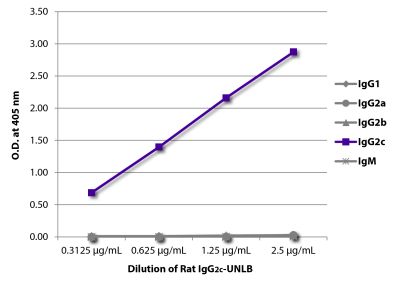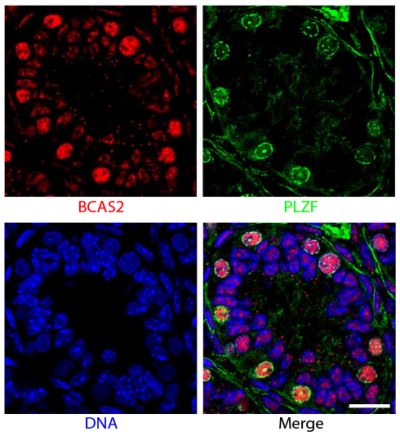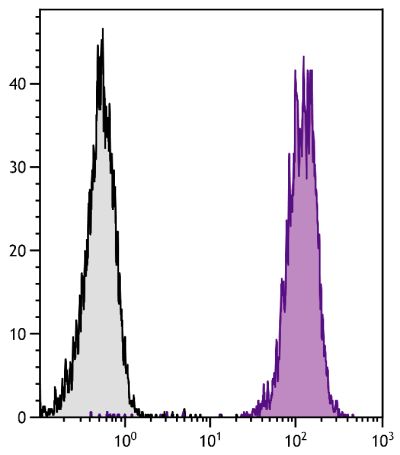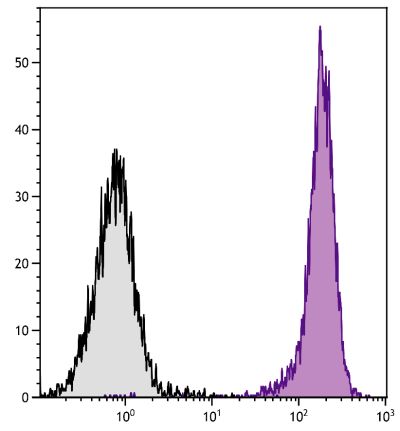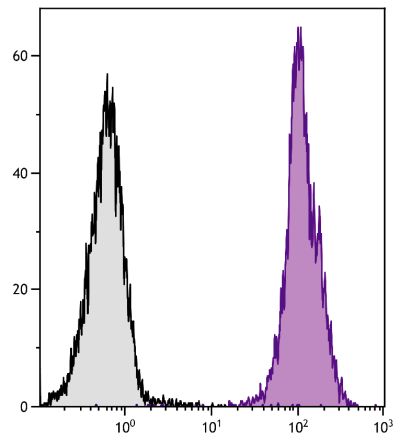Rat Anti-Mouse Ly-6C-UNLB (HK1.4)
Cat. No.:
1760-01
Purified Anti-Mouse Ly-6C antibody for use in flow cytometry, immunohistochemistry, and activation assays.
$229.00
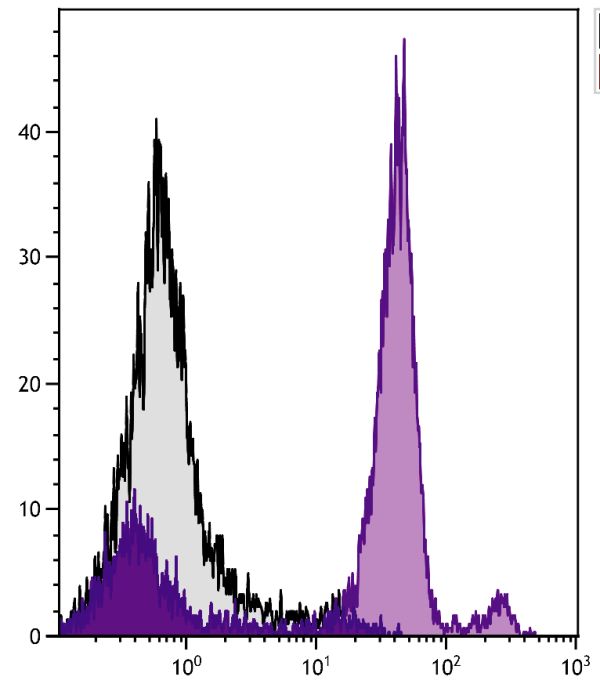

| Clone | HK1.4 |
|---|---|
| Isotype | Rat (Lewis) IgG2cκ |
| Isotype Control | Rat IgG2c-UNLB (SB68b) |
| Specificity | Mouse Ly-6C |
| Description | Ly-6C is a member of the Ly-6 multigene family of type V glycophosphatidylinositol-anchored cell surface proteins. It is expressed on bone marrow cells, monocytes/macrophages, neutrophils, endothelial cells, and T-cell subsets. Mice with the Ly-6.2 allotype (e.g., AKR, C57BL, C57BR, C57L, DBA/2, PL, SJL, SWR, 129) have subsets of CD4+Ly-6C+ and CD8+Ly-6C+ cells while Ly-6.1 strains (e.g., A, BALB/c, CBA, C3H/He, DBA/1, NZB) have only CD8+Ly-6C+ lymphocytes. Ly-6C may play a role in the development and maturation of lymphocytes. |
| Immunogen | L3 cloned CTL cells |
| Conjugate | UNLB (Unconjugated) |
| Buffer Formulation | Borate buffered saline, pH 8.2 |
| Clonality | Monoclonal |
| Concentration | 0.5 mg/mL |
| Volume | 1.0 mL |
| Recommended Storage | 2-8°C |
| Applications |
Flow Cytometry – Quality tested 1-8 Immunohistochemistry-Frozen Sections – Reported in literature 2 Activation – Reported in literature 1 |
| RRID Number | AB_2795255 |
| Gene ID |
17067 (Mouse) |
| Gene ID Symbol |
Ly6c1 (Mouse) |
| Gene ID Aliases | AA682074; AA959465; Ly-6C; Ly-6C1; Ly6c |
| UniProt ID |
P0CW02 (Mouse |
| UniProt Name |
LY6C1_MOUSE (Mouse) |
Documentation
Certificate of Analysis Lookup
Enter the Catalog Number and Lot Number for the Certificate of Analysis you wish to view
- 1. Harvan WL, Lancki DW, Moldwin RL, Dialynas DP, Fitch FW. Characterization of an anti-Ly-6 monoclonal antibody which defines and activates cytolytic T lymphocytes. J Immunol. 1988;140:1034-42. (Immunogen, FC, Activ)
- 2. Flanagan K, Modrusan Z, Cornelius J, Chavali A, Kasman I, Komuves L, et al. Intestinal epithelial cell up-regulation of LY6 molecules during colitis results in enhanced chemokine secretion. J Immunol. 2008;180:3874-81. (FC, IHC-FS)
- 3. Chen CH, Grimbaldeston MA, Tsai M, Weissman IL, Galli SJ. Identification of mast cell progenitors in adult mice. Proc Natl Acad Sci USA. 2005;102:11408-13. (FC)
- 4. Chapatte L, Colombetti S, Cerottini J, Lévy F. Efficient induction of tumor antigen-specific CD8+ memory T cells by recombinant lentivectors. Cancer Res. 2006;66:1155-60. (FC)
- 5. Schröder J, Lüllmann-Rauch R, Himmerkus N, Pleines I, Nieswandt B, Orinska Z, et al. Deficiency of the tetraspanin CD63 associated with kidney pathology but normal lysosomal function. Mol Cell Biol. 2009;29:1083-94. (FC)
- 6. Sun Q, Jin H, Bond JS. Disruption of the meprin alpha and beta genes in mice alters homeostasis of monocytes and natural killer cells. Exp Hematol. 2009;37:346-56. (FC)
- 7. León B, del Hoyo GM, Parrillas V, Vargas HH, Sánchez-Mateos P, Longo N, et al. Dendritic cell differentiation potential of mouse monocytes: monocytes represent immediate precursors of CD8- and CD8+ splenic dendritic cells. Blood. 2004;103:2668-76. (FC)
- 8. Liu W, Xiao X, Demirci G, Madsen J, Li XC. Innate NK cells and macrophages recognize and reject allogeneic non-self in vivo via different mechanisms. J Immunol. 2012;188:2703-11. (FC)
See All References


